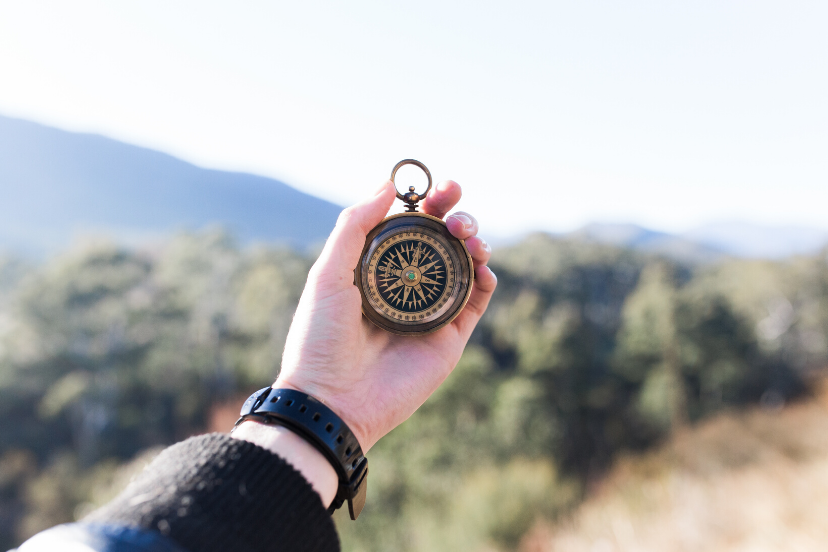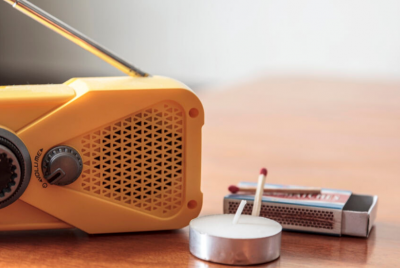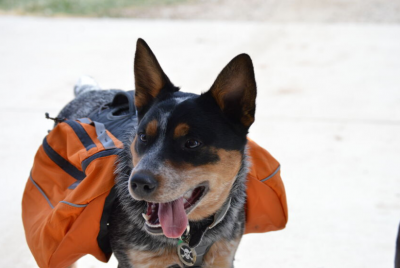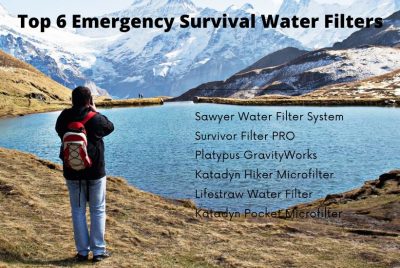16 Survival Skills Every Man Should Know To Stay Alive

Without proper survival skills training, your odds of survival aren’t good. In fact, during an unexpected catastrophic event, most individuals fail to do the one thing that would save their life. They freeze up and do nothing to protect themselves from harm.
When an unimaginable event happens, you could become overwhelmed with fear, shock, and even incapable of thinking and behaving rationally.
What will your reaction be to the next natural or man-made disaster? Will you panic like the average person? Or will you be prepared like a prepper or survivalist? Only time will tell.
Why are basic survival skills so important?
I once read that under extreme conditions, you can survive 3 minutes without air, 3 hours without shelter, 3 days without food water, and 30 days without food.
Food, water, fire, and shelter seems to be all we really need!
We all know these items are needed for the survival of the human race and every individual man, woman, and child on this earth. However, during tough times these items become scarce. As such, the most important thing you can do is to learn how to secure these four must-have resources when they are not readily available.
16 basic survival skills you should master to stay alive
In a survival situation, there are 16 essential skills that every man should know to stay alive. These basic survival skills are not listed in any order of importance.
1. How to gather food
In a survival situation, when food is scarce, gathering food is one of several basic survival skills that will come in handy. Depending on your living situation, there are several ways to go about getting food when it is not readily available on grocery store shelves.
In the short term, if you live near the wilderness, you can hunt and fish for food to eat. So fishing and hunting are two valuable skill sets to have in order to catch, trap, or kill your food quickly. Another quick option, in urban areas with lots of abandoned homes, is to scavenge for food in the surrounding areas.
The long term solution is farming. You should know how to grow your food. If you don’t already know how this is something you are going to need to know how to do.
2. How to find and purify water
There could come a time when you do not have water freely flowing into your home as a public utility. When this happens, how will you get water for cooking, bathing, washing, and for your other needs? How will you get drinking water before dehydration sets in?
You may have a few bottles of water stashed away or an even more abundant supply in a cache. However, when this runs out, you must have ways to replenish your water supply. Water collection methods can work, but you always need to be able to find other water sources nearby.
When you can and do find water, it may not always be safe to drink. You should assume the water is contaminated until you know otherwise. As such, it is essential that you know how to purify dirty water. Keep a filtering device on hand to treat water and know how to use it.
3. How to start a fire without a lighter or matches
You’ll need fire for many things. Fire can keep you warm and aid you in cooking foods so that you have a warm meal. Fire can be used for a multitude of tasks including
- signaling
- smelting
- forging
- cooking
- cremating
During an emergency situation, natural, or man-made event, fire may not come easy. You’ll have to be able to start a fire without a lighter or matches. There are plenty of fire starter tools and survival gear you can use to get a fire going. You just need to decide on a few methods and practice building fires until it becomes second nature.
4. How to build a shelter
Fire, water, and food are essential. However, you still need shelter. Shelters will keep you warm and out of the outdoor cold. They can also protect you from severe weather, from an animal threat, and other people.
When night falls, you want to be inside of a building to stay dry. If you live in an urban area, you could look for an abandoned build that could provide shelter.
If you are in a rural or wilderness area, buildings might be hard to come by or may already be occupied by others. In this case, you will need to find other ways to secure shelter, and knowing how to build your own would come in handy.
5. How to defend yourself from other people
Are you prepared to protect yourself from hostile forces who are looking to take what you have or do you harm? If you have resources, it is likely someone will try to take them during a survival situation. Others in your area my band together and go looking to take supplies from others.
When it comes to personal self-defense, there are a few things you can to protect yourself and your family. Learn and practice some form of hand-to-hand combat fighting techniques. You should arm yourself with a firearm and many of the other self-defense weapons (i.e., knife, baton, pepper spray, etc.) that are out there.
6. How to survive without electrical power
In the event of a blackout or power outage, you must be prepared to survive without electrical power. When the power grid goes down, you can expect complete darkness at night. Fear and uncertainty can quickly set in when the lights go out, and you have no way to restoring restore them.
In the short term, you must have alternative power options ready to go. When you need immediate power a few alternative sources, you can turn to for electrical power include
- gas powered generators
- solar power generators
- storage batteries
However, to use the alternative power sources as a backup, you must plan ahead. If the electrical grid is down indefinitely, you will have to look for other renewable energy sources. Hydroelectric, wind, and solar power are by far the most efficient sources of renewable energy. It will take considerable time and effort to get either one of the power systems in place a ready to supply you and your home with power.
8. How to perform basic first aid
Having basic first aid survival skills could be the difference between life and death. This is especially the case if you, a family member, or friend, is injured, requiring immediate medical attention to stop bleeding. Injuries you should be prepared to treat include:
- bites
- burns
- fractures
- hyperthermia
- hypothermia
- infections
- poisonings
- sprain
- wounds
Before you can give or administer first aid, you must have a well-stocked survival first aid kit. You can buy a first aid kit that is already pre-stocked, or you could add to the kit piece by piece until it is complete.
9. How to navigate by land or water without a GPS
Today we rely on GPS devices more than we should. Some people can not even ready a map nowadays. When GPS is no longer an option, are you prepared to navigate from one location to another? If not, you better learn to now. When the SHTF, it will be too late to learn.
At a minimum, you should learn how to navigate by:
- compass
- dead reckoning
- landmarks
- map
- sun
- stars
- terrain
You must know how to read a compass and a map. You must learn how if this is not already a skill set you have.
10. How to signal for help if you are lost or injured
If you are injured or lost, it is a good idea to know how to call or signal for help. During a survival situation, your ability to send out a distress single or call for help can make all the difference as to whether you live or die. Signaling can be accomplished in many ways using various devices and methods such as a
- whistle
- mirror
- flashlight
- flare
- flag
- markings
- smoke
Be sure to include redundant signaling devices in your survival kit or bug out bag. Think through and if reasonable, practice using your signaling methods beforehand.
11. How to forage and scavenge for the items you need
During a sustained disaster, you will quickly run out of food and supplies. When you need to resupply food and water you can go foraging and scavenging to find the items you need.
You can forage for food in rural and wilderness areas. There are plenty of berries, fruits, greens, and mushrooms growing wild that you can eat. In urban areas and the city, you can go door to door and search for food and much-needed supplies.
When drug stores, restaurants, grocery stores, and gas stations are abandoned, it is an excellent time to go after supplies. In the early days, you will be able to secure medicine, can goods, gasoline, batteries, and anything useful that is left behind.
Do not assume everything has already been taken.
12. You need to be able to move around unnoticed and undetectable
During tough times, a great skill to have is to be the ability to move around without being noticed. As you come and go, you do not want to give away your location. This is for obvious reasons.
Doing so will put you and your family at risk. If robbers and bandits observe you, they will comfortably sit back, follow you home, and then attack when you least expect it. Learn to blend in naturally to your environment and move around without being noticed or detected.
If you practice being stealthy, you can move around in plain sight without ever being seen.
13. You must learn how to barter and negotiate
Bartering and negotiating are some basic survival skills that you can put to good use. Without money, you have to be creative if you’re going to get the things you need. Yes, if need be, you can take what you want by force. But this is not always the best option.
Having excellent negotiation skills will assist you in bartering for the goods and services that you need. Some useful items to barter for include:
- ammunition
- alcohol
- cigarettes
- coffee
- food
- gasoline
- medicine
- soaps
- water
14. Learn how to read and understand people and the environment
You have to learn to read people if you want to ensure survival. When dealing with people, you can learn a lot by the words they say, their facial expressions, and body language. These are all tell-tell signs that can expose when someone is lying to you or telling the truth. Often time, you will have to rely on your instinct to keep you out of harm’s way.
Concerning understanding your environment, you must always be on the lookout for changes in the people, places, and things around. You must notice differences, what has changed.
Always look to improve your situational awareness. Be suspicious of everything that doesn’t feel right and take action to defend against anything that will put you in danger.
15. Conduct weapons training often
You must own and know how to use a firearm safely. You might not believe in gun ownership. However, if your neighbor or others do, they have a deadly advantage. You must fire your guns often.
Train on proper techniques. Learn to use handguns, shotguns, and rifles. As each type of firearm serves a specific purpose during a survival event. It is a good idea to know how to clean and repair each of your weapons — you must stock a few extra parts. Also, knowing how to make your ammunition is a plus.
16. You must learn how to adapt as the situation changes
One of the most important skills you can have in a survival situation is the ability to adjust as the circumstances around you change. Change, will be the only thing that remains constant as the world around you goes through an evolution of uncertainty. From chaos to normal, for normalcy to chaotic over and over again.
You must be flexible and adaptable to whatever is thrown at you by mother nature or man. The person who can adapt the quickest has the best chance for survival.
What natural disasters should I be prepared for?
We all know the power of mother nature and the many numbers of natural disasters that can ensue. The more powerful the natural disaster, the more damage you can expect you the ecosystem, lives, and personal property. Natural disasters can level you with nothing.
The most common disasters of nature are related to:
Geological: Geological based disasters include earthquakes, fires, landslides, and volcanoes. Each of these events can displace you from your home, cause death, and significant financial damages.
Water: Water-based disaster events include avalanches, droughts, floods, and tsunamis. The damage to lives and property can also be significant when water is involved.
Weather: Weather events are also the most likely events that occur each year. Extreme-weather, hurricanes, tornadoes, and winter storms cause the most damage. Depending on the severity, lives and property damage is put at risk.
Other: Some other natural events that cause concern are pandemics, the spread of localized disease, and solar storms.
What man-made disasters should I be prepared for?
Although mother nature can be disastrous and unforgiving, you must also know about and be prepared for man-made disasters. Many man-made events can bring human suffering, environmental damage, and harm to citizens. The most likely events you must consider and prepare for including:
- Power Outages: If the power grid goes down, we all will be without electricity. Many of the modern conveniences we take for granted will not operate.
- Dam Failures: A dam failure or levee breach could displace hundreds of thousands of people out of their home with nowhere to live.
- Economic Collapse: There will be no banks, no ATMs, and the money supply will run out. How will you pay for goods and services?
- Oil & Chemical Spills: Entire ecosystems will be damaged in the unlikely event of an oil or chemical spill. These cause damages to humans, the environment, and our food supply.
- Terrorist Attacks: Attacks of terror could result in mass casualties and have you in a state of constant fear. You are not longer safe.
- Electromagnetic Pulse (EMP) Attacks: EMP attacks will cause severe damage to the power grid making all things that work electronically
- Wars: With war comes the threat and possibility of biological, chemical, and nuclear attacks that will all alter the way we live and view the world.
Final Thoughts On Survival Skills
You need two things to master any of the 16 survival skills I mention above. First, you must learn as much as you can about each skill. Second, you must practice each skill until they are instinctively a part of your DNA.
You should be able to perform each skill in the most stressful situations. So whenever you practice, add in the sense of urgency and stress to make practice more realistic.



